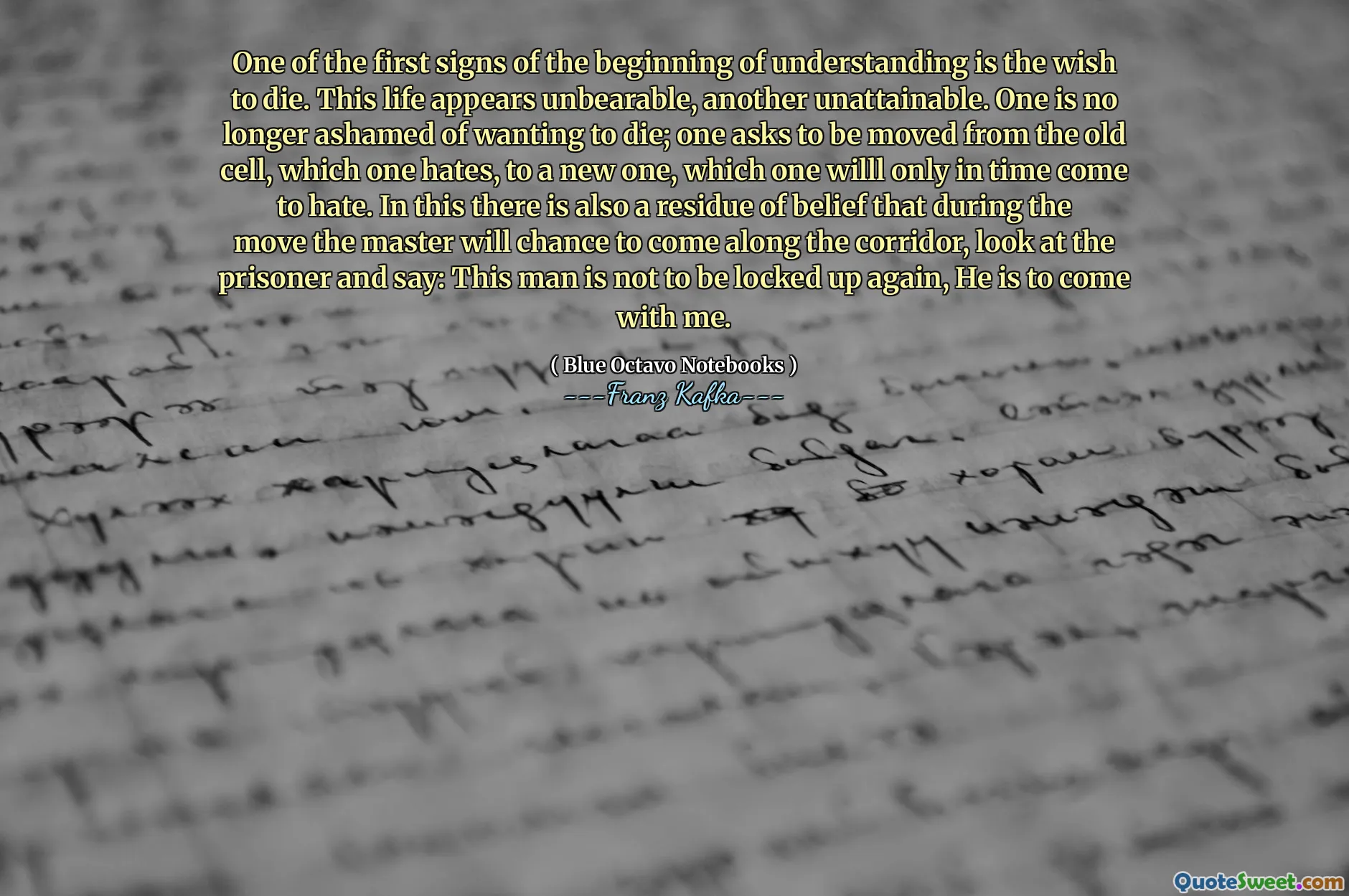
One of the first signs of the beginning of understanding is the wish to die. This life appears unbearable, another unattainable. One is no longer ashamed of wanting to die; one asks to be moved from the old cell, which one hates, to a new one, which one willl only in time come to hate. In this there is also a residue of belief that during the move the master will chance to come along the corridor, look at the prisoner and say: This man is not to be locked up again, He is to come with me.
The quote from Franz Kafka's "Blue Octavo Notebooks" reflects a profound aspect of human experience— the desire for change amidst suffering. In the early stages of understanding one’s existence, the unbearable nature of life may lead to thoughts of wanting to escape it altogether. This feeling is tied to the hope that a new beginning might bring relief, even if it is ultimately just another form of confinement that will also be resented over time.
Additionally, Kafka illustrates a deep yearning for liberation in the midst of despair. The image of a prisoner longing for their master to acknowledge them signifies a desire for redemption and freedom from suffering. It paints a poignant picture of how the search for meaning can coexist with feelings of hopelessness, highlighting the complex relationship between despair and the hope for transformation.
